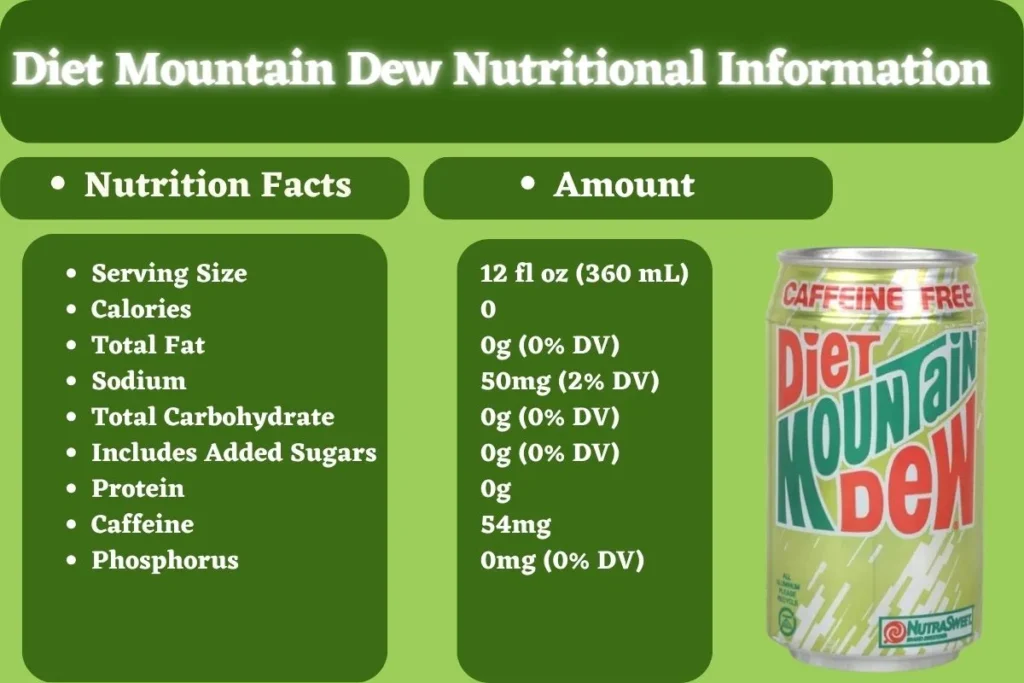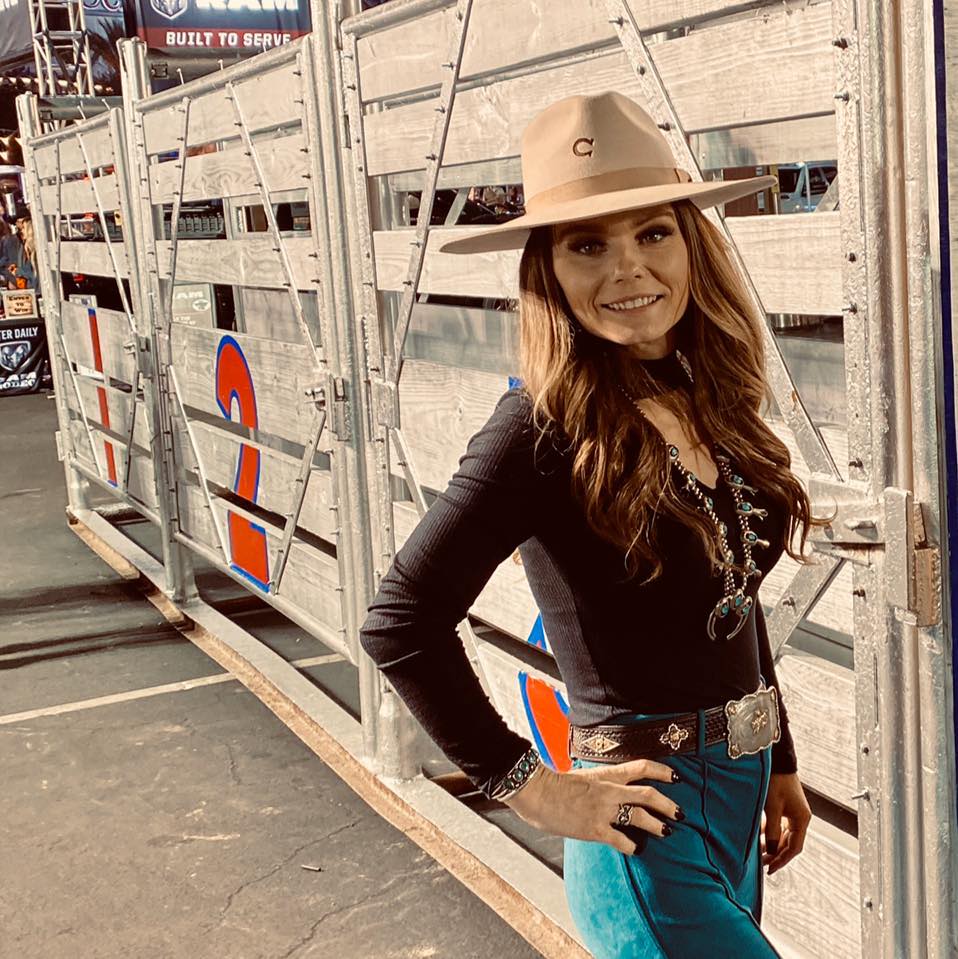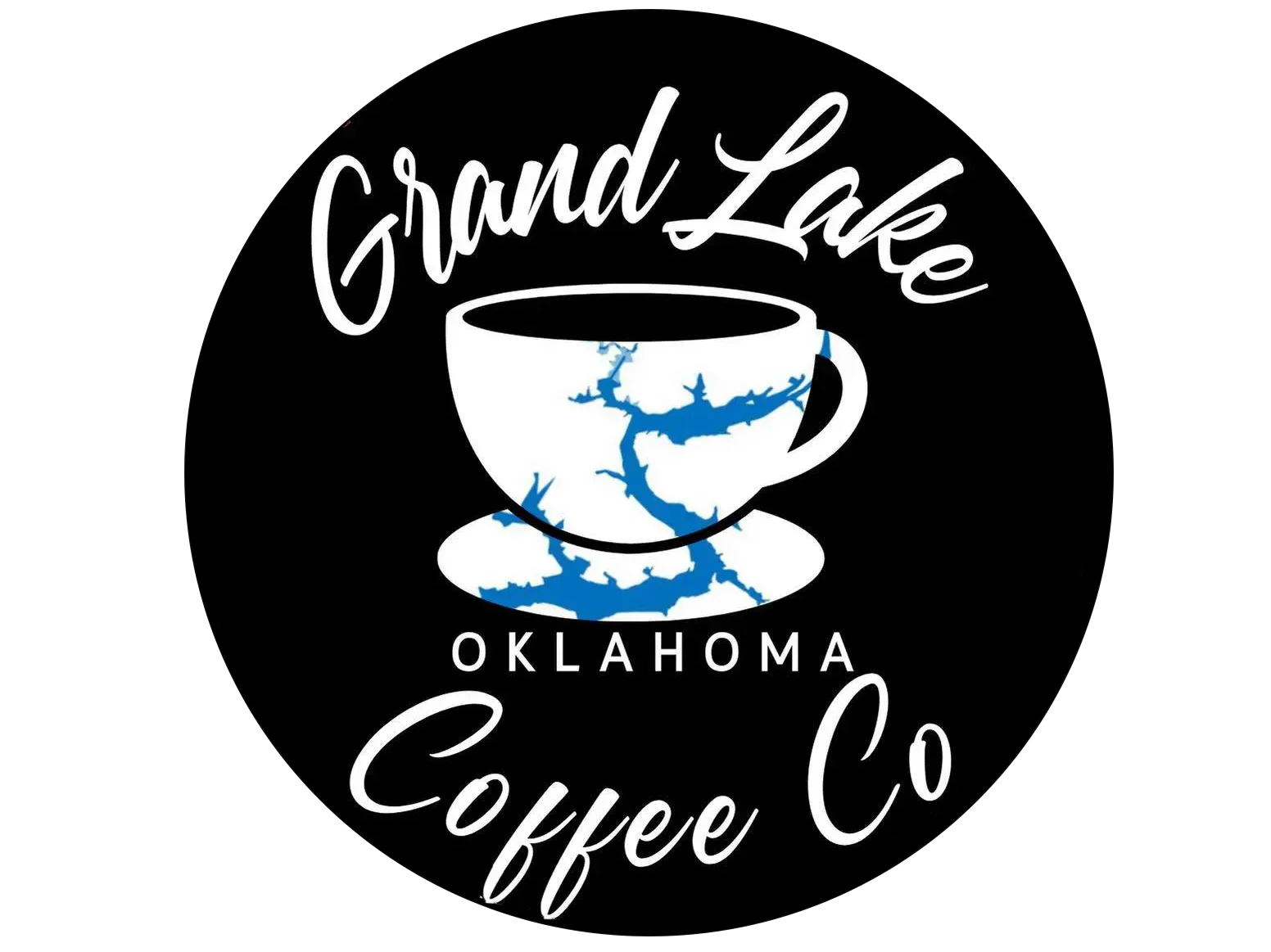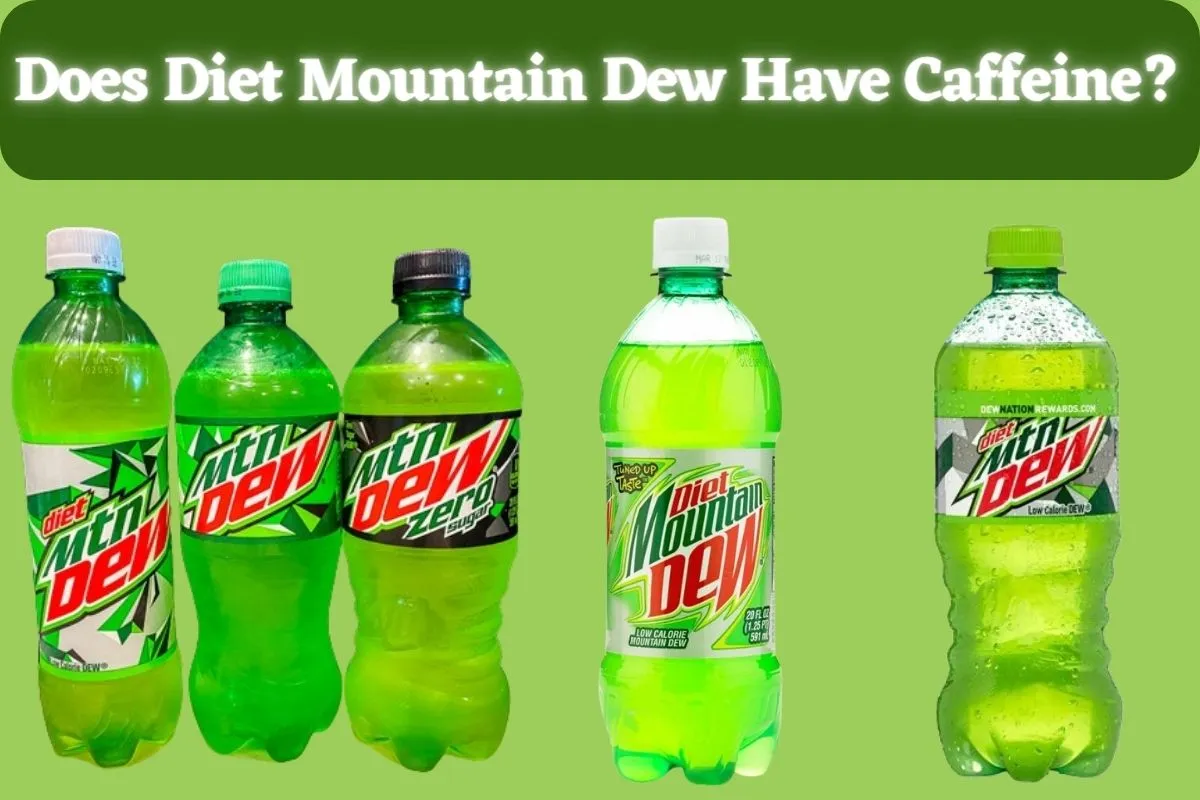Ever crave that bold, citrusy blast of Mountain Dew but want to avoid the sugar rush? You’re likely a fan of Diet Mountain Dew – it promises that signature taste without the calories. But what about a different kind of kick? Does Diet Mountain Dew Have Caffeine?, making it a suitable pick-me-up or a drink to avoid before bed?
Let’s dive into the question…
Importance of Knowing Caffeine Content in Diet Mountain Dew
Diet Mountain Dew enjoys a widespread presence both nationally and internationally, appealing to those seeking a sugar-free alternative to the classic soda. Owned by the Pepsi-Cola Company since 1964, Diet Mountain Dew has garnered a worldwide fan base among soda beverages.
While its main benefit lies in calorie reduction, it’s important to be aware of its caffeine content.
The amount of caffeine in your can of Diet Mountain Dew is fixed, but its impact on your body depends on factors like your individual metabolism, other caffeine sources in your diet, and any existing medical conditions.
Some people mistakenly believe that “diet” drinks are caffeine-free, which isn’t the case.
Importantly, certain groups should be mindful of or avoid Diet Mountain Dew’s caffeine content. Those with caffeine sensitivity, anxiety disorders, or sleep issues might experience heightened reactions.
Pregnant women and children should also limit their intake due to health concerns related to caffeine consumption. Understanding the caffeine content in Diet Mountain Dew empowers you to make informed choices about your beverage consumption, ensuring it fits within your overall health and lifestyle goals.
Does Diet Mountain Dew Have Caffeine?
Yes, the majority of Diet Mountain Dew products do contain caffeine. As a popular sugar-free soda, it serves up the signature citrus jolt of Mountain Dew, but its caffeine content is worth considering.
The amount of caffeine varies based on the size of your Diet Mountain Dew:
- 7.5 fl oz: Contains 34mg of caffeine
- 12 fl oz: Contains 54mg of caffeine
- 16 fl oz: Contains 72mg of caffeine
- 16.9 fl oz: Contains 77mg of caffeine
- 20 fl oz: Contains 91mg of caffeine
- 24 fl oz: Contains 109mg of caffeine
- 33.8 fl oz: Contains 153mg of caffeine
These amounts are comparable to other popular diet sodas.
However, while most Diet Mountain Dew contains caffeine, there are caffeine-free versions available. These are less common and may not be found in all stores or regions. Always carefully check the label to ensure you’re getting the caffeine-free version if that’s your preference.
Diet Mountain Dew Variants and their Caffeine Content
The caffeine content in Diet Mountain Dew variants for both the fountain version and the SodaStream version differs slightly, reflecting the different methods of preparation and serving sizes.
- Diet Mtn Dew Fountain: For the Diet Mtn Dew Fountain version, a 12 fl oz (approximately 360 mL) serving contains 54mg of caffeine. This is consistent with what you might find in fast food restaurants or convenience stores where fountain drinks are served.
- Diet Mtn Dew SodaStream: On the other hand, the Diet Mtn Dew SodaStream variant, which allows for the preparation of the drink at home using a SodaStream machine, shows a slight difference in caffeine content. For a serving size of about 1 1/3 tablespoons (18 mL) of the SodaStream syrup, which is intended to make 12 fl oz (360 mL) of the finished drink, the caffeine content is 51mg. This small difference in caffeine content might be due to the concentration of the syrup and the precise mixing instructions for home preparation.
List of Ingredients in Diet Mountain Dew
The typical ingredients found in Diet Mountain Dew include:
- Carbonated Water: Creates the foundation for the soda, providing the fizz and refreshing sensation.
- Concentrated Orange Juice: While not the dominant flavor, it adds a subtle citrusy note to the overall taste profile of Diet Mountain Dew.
- Citric Acid: Responsible for the characteristic tartness of the soda. It also serves as a natural preservative, extending the beverage’s shelf life.
- Natural Flavor: The specific composition of this flavor blend is what makes Mountain Dew unique. It likely contains a complex mix of natural citrus extracts and other complementary flavoring agents.
- Potassium Benzoate & Sodium Benzoate: This duo works together to inhibit the growth of bacteria, yeast, and mold, helping keep your Diet Mountain Dew fresh for longer.
- Calcium Disodium EDTA: This additive plays a crucial role in protecting the soda’s flavor. It binds with stray metal ions that could potentially cause unpleasant flavor changes or discoloration over time.
- Aspartame, Acesulfame Potassium, & Sucralose: This trio of high-intensity artificial sweeteners delivers the sweet punch without adding any calories. Using a blend helps create a more balanced and rounded sweetness profile.
- Potassium Citrate & Sodium Citrate: These salts help fine-tune the acidity level of the soda and contribute subtle flavor nuances. Sodium citrate adds a slight saltiness, which can enhance the overall taste perception.
- Caffeine: The source of Diet Mountain Dew’s energizing kick. Keep in mind that the caffeine content will vary depending on the specific serving size.
- Gum Arabic: This natural emulsifier helps maintain a smooth and consistent texture in the soda, preventing ingredients from separating.
- Yellow 5: This artificial dye is what gives Diet Mountain Dew its distinctive bright neon-yellow color.
- PHENYLKETONURICS: CONTAINS PHENYLALANINE: This essential warning is for individuals who have the rare genetic disorder phenylketonuria (PKU). Their bodies cannot properly metabolize phenylalanine, a component of aspartame, potentially leading to harmful buildup.
Diet Mountain Dew Nutritional Information:

Diet Mountain Dew, as the name implies, offers a calorie-free option for soda lovers. A 12 fl oz serving contains zero calories, zero grams of fat, and zero grams of total carbohydrates (including added sugars) and protein.
It does have 50mg of sodium, which amounts to 2% of the daily recommended value. The signature energy boost in Diet Mountain Dew comes from 54mg of caffeine. It’s worth noting that Diet Mountain Dew doesn’t provide any phosphorus, a key mineral, or any other vitamins or nutrients of significance.
| Nutrition Facts | Amount |
| Serving Size | 12 fl oz (360 mL) |
| Calories | 0 |
| Total Fat | 0g (0% DV) |
| Sodium | 50mg (2% DV) |
| Total Carbohydrate | 0g (0% DV) |
| Includes Added Sugars | 0g (0% DV) |
| Protein | 0g |
| Caffeine | 54mg |
| Phosphorus | 0mg (0% DV) |
Read Also:
Alternatives to Diet Mountain Dew and their Caffeine Content
There are several alternatives to Diet Mountain Dew for those seeking similar beverage options.
Pepsi Zero Sugar:
This beverage offers the classic Pepsi taste with zero sugar, appealing to those who want the flavor without the calories. With a higher caffeine content than Diet Mountain Dew, it’s a good pick for those seeking a more robust caffeine kick.
Diet Coke:
A staple in the world of diet sodas, Diet Coke provides a distinct taste that’s different from Pepsi products. Its caffeine content is slightly lower than Diet Mountain Dew, making it a suitable choice for individuals looking to decrease their caffeine intake marginally.
Coca-Cola Zero Sugar:
Designed to mimic the full-sugar version of Coca-Cola, Coca-Cola Zero Sugar offers a taste closer to the original than Diet Coke, with a caffeine content that’s somewhat lower than Diet Mountain Dew.
Dr Pepper Zero Sugar:
For those who favor a more complex flavor profile, Dr Pepper Zero Sugar delivers the unique blend of 23 flavors without the sugar, and its caffeine content is close to that of Diet Mountain Dew, providing a similar energy boost.
Diet 7-Up:
As a caffeine-free option, Diet 7-Up offers a refreshing lemon-lime taste. It’s perfect for those who enjoy fizzy beverages but need to avoid caffeine due to dietary restrictions or personal preferences.
Sprite Zero:
Another caffeine-free option, Sprite Zero delivers the well-loved lemon-lime flavor of its sugared counterpart, making it an excellent choice for those looking for a diet soda without the buzz.
Zevia Zero Calorie Soda (Cola):
Zevia offers a stevia-sweetened, zero-calorie alternative with a caffeine punch comparable to Diet Mountain Dew. It appeals to those seeking natural sweetener options in their diet beverages.
| Beverage | Caffeine Content |
| Pepsi Zero Sugar | 69mg per 12 fl oz serving |
| Diet Coke | 46mg per 12 fl oz serving |
| Coca-Cola Zero Sugar | 34mg per 12 fl oz serving |
| Dr Pepper Zero Sugar | 41mg per 12 fl oz serving |
| Diet 7-Up | Caffeine-free |
| Sprite Zero | Caffeine-free |
| Zevia Zero Calorie Soda (Cola) | 45mg per 12 fl oz serving |
Read Also:
Recommended Daily Intake of Diet Mountain Dew
Most health authorities suggest a safe upper limit of 400mg of caffeine per day for healthy adults. A 12 fl oz serving of Diet Mountain Dew contains 54mg of caffeine, which represents roughly 13.5% of this recommended daily limit.
This indicates that you could enjoy multiple Diet Mountain Dews throughout the day and still likely stay within a healthy caffeine intake range. Of course, caffeine sensitivity varies widely between individuals.
Some may tolerate much larger quantities without issue, while others may feel jittery or overstimulated after smaller amounts. It’s essential to listen to your body’s signals and adjust your intake accordingly. Always consider your overall caffeine consumption from other sources like coffee, tea, or energy drinks throughout the day.
Conclusion
Does Diet Mountain Dew Have Caffeine? Diet Mountain Dew does indeed contain caffeine. The amount varies somewhat depending on the serving size, but a standard 12 fl oz can provides a significant caffeine boost. If you’re searching for a completely caffeine-free soda alternative, be sure to check the label for the caffeine-free version of Diet Mountain Dew.
Those sensitive to caffeine or seeking to moderate their intake should consider the amount present in Diet Mountain Dew alongside other sources of caffeine in their diet. By being an informed consumer, you can enjoy Diet Mountain Dew while making choices that align with your individual needs and preferences.
Frequently Asked Questions
Q1. Is there a difference in taste between Mountain Dew Zero and Diet Mountain Dew?
There is a subtle difference in taste between Mountain Dew Zero Sugar and classic Diet Mountain Dew. While both aim to replicate the flavor of regular Mountain Dew, Zero Sugar was reformulated to come closer to the original’s sweetness profile. Some people find they have a preference for one over the other.
Q2. Does Caffeine-Free Diet Mountain Dew taste anything like Mountain Dew?
The caffeine-free version of Diet Mountain Dew aims to capture the essence of the classic flavor but without the energizing boost. However, many individuals find that the absence of caffeine does subtly alter the taste perception. Still, it offers a suitable alternative for those who enjoy the citrusy punch without the caffeine content.
Q3. Does Diet Mountain Dew contain aspartame?
Yes, Diet Mountain Dew contains aspartame as part of its sweetener blend. Aspartame is a widely used high-intensity artificial sweetener that delivers sweetness without adding calories.
Q4. Why does Diet Mountain Dew say “low-calorie drink” and not “zero calorie”?
Technically, labeling regulations allow beverages with less than 5 calories per serving to be categorized as “low calorie”. While Diet Mountain Dew is incredibly close to zero calories, it may contain trace amounts of other ingredients that contribute a tiny number of calories.
Q5. Is Diet Mountain Dew keto?
Yes, Diet Mountain Dew’s zero-calorie and zero-carb formulation generally makes it compatible with a ketogenic diet. However, it’s essential to be aware of its artificial sweeteners, as some individuals on the keto diet may choose to limit their intake of these substances.

Rossi Glover, the passionate Owner of Grand Lake Coffee, infuses every cup with her love for coffee and dedication to quality. With an extensive background in the art and science of coffee, Rossi is not just a connoisseur but a storyteller, sharing the intricate tales behind each brew.

